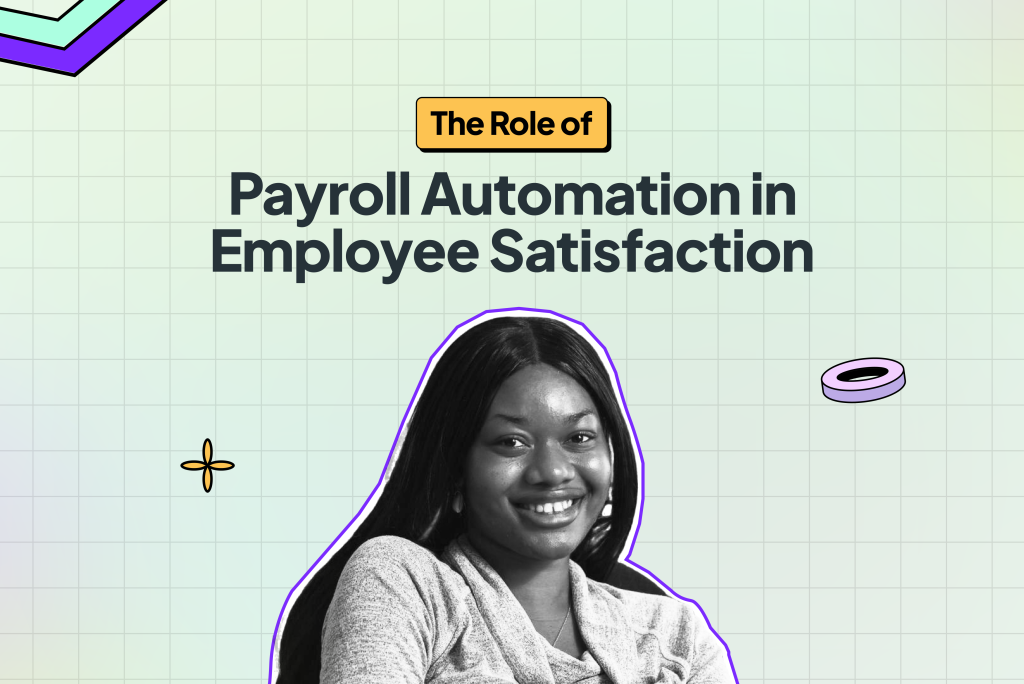
“Clients do not come first. Employees come first. If you take care of your employees, they will take care of the clients.” – Richard Branson.
As an employer of labor, your employees are vital to the success of your business. How people perceive your employees can affect the outlook of your business and brand name and can impact how they see your product. Regardless of your management technique, no one wants employees who grumble or complain about their employers after the close of business.
Effective management, including timely and accurate payroll processes, plays a significant role in Payroll Automation in Employee Satisfaction.
However, manual payroll methods often fall short, leading to frustration and potential turnover. By leveraging payroll automation, businesses can boost employee satisfaction and create a workplace culture where employees feel valued and motivated.
In this blog post, we’ll explore how payroll automation impacts employee satisfaction, starting with a brief overview of payroll automation and employee satisfaction.
What is Payroll Automation?
Payroll automation uses software to perform repetitive and complex payroll tasks, from calculating salaries and deductions to managing tax withholdings and direct deposits. An automated payroll system ensures that employee pay is accurate, timely, and secure, reducing the potential for costly errors and freeing up valuable resources within the HR department. Automated payroll systems are particularly beneficial for small and medium-sized businesses, allowing them to streamline payroll management without the risk of manual calculation errors.
What is Employee Satisfaction?
Employee satisfaction reflects how content employees are with their jobs and the workplace environment. It encompasses factors such as fair compensation, workplace culture, recognition, and growth opportunities. Satisfied employees are more likely to be engaged, productive, and loyal to the organization. In fact, 49% of U.S. employees say they would consider leaving their jobs after experiencing payroll errors, highlighting the crucial role payroll plays in overall job satisfaction. Addressing payroll issues through automation can go a long way toward enhancing employees’ sense of value and stability within the company.
Seven Ways Payroll Automation In Employee Satisfaction Increases Efficiency
1. Ensures Timely and Accurate Payments

One of the most direct ways payroll automation boosts employee satisfaction is by ensuring accurate and timely payments. Automated systems reduce the chances of payroll errors, which, according to G2, impact nearly 33% of companies yearly. Employees rely on their paychecks to be accurate and timely, and delays or mistakes can create financial stress. With payroll automation, employees are assured of a predictable pay schedule, which enhances trust and dependability in their employer.
2. Reduces Payroll-Related Errors
Payroll errors are costly for the company and a major source of frustration for employees. Approximately 40% of payroll errors stem from manual data entry, which automation can eliminate. Automated payroll systems handle complex calculations and compliance updates automatically, reducing the chances of error. By minimizing discrepancies in paychecks, employees experience less stress and have greater trust in the payroll process.
3. Streamlines Access to Payroll Information
Many payroll automation systems provide employees with access to a self-service portal where they can view pay stubs, manage tax information, and review benefits. According to G2, 83% of companies offer employees access to online payroll information. This transparency empowers employees by giving them control over their payroll data and reducing the need to consult HR for minor issues. Such access to payroll information can increase employee satisfaction by promoting a culture of transparency and trust.
4. Improves Compliance with Payroll Regulations

Keeping up with payroll regulations is challenging, particularly for small businesses. An automated payroll system ensures that the latest regulatory updates are incorporated, reducing non-compliance risk. This compliance avoids costly penalties and fosters a culture of trust and security among employees, who feel assured that their taxes and deductions are being handled accurately. When employees know their employer takes payroll seriously, it reflects a commitment to fair and ethical business practices.
5. Enhances Employee Financial Well-Being
Payroll automation can directly impact employee financial wellness. With accurate and timely payments, employees can budget and manage their finances more effectively. In the U.S., 72% of employees report experiencing financial hardship after a single week of delayed pay. Regular, reliable payroll processing helps reduce financial anxiety and reinforces a sense of stability, contributing to overall job satisfaction.
6. Enables More Time for Employee-Focused Initiatives
Manual payroll processing is time-consuming and detracts from strategic HR initiatives. Automating payroll frees up HR resources, allowing them to focus on employee engagement, training, and career development programs. Employees benefit from a more responsive HR team that can dedicate time to initiatives that foster growth, recognition, and development within the organization. In this way, payroll automation contributes to a healthier work environment that values employee growth and satisfaction.
7. Supports a Positive Company Culture
Payroll issues are one of the most common sources of frustration for employees. By automating payroll, companies demonstrate a commitment to their employees’ satisfaction and well-being. As Richard Branson’s quote highlights, putting employees first encourages them to feel valued, appreciated, and motivated to perform at their best. Automated payroll can be a key factor in creating a positive company culture, where employees know they can rely on fair treatment and timely compensation.
What to Look for in a Payroll Automation System
When choosing a payroll automation system to enhance employee satisfaction, consider the following features:
- Ease of Use: Select a system that’s easy for both administrators and employees to navigate, as user-friendliness promotes adoption and satisfaction.
- Self-Service Access: Look for systems that offer employees a portal for accessing pay information, managing tax forms, and reviewing deductions, as this enhances transparency.
- Compliance Updates: Ensure the software incorporates automatic regulatory updates to keep your payroll practices compliant with local laws and tax codes.
- Integration Capabilities: Payroll systems that integrate with other HR or financial tools make payroll processing seamless, especially for businesses with existing systems.
- Data Security: Prioritize systems with strong encryption and data protection features to ensure employee information remains secure.
- Scalability: Choose software that can scale as your business grows, enabling you to add employees or adjust payroll processes without switching systems.
Conclusion
As Richard Branson wisely stated, “Clients do not come first. Employees come first.” Putting employee satisfaction at the forefront is a sure path to business success, and payroll automation plays a pivotal role in achieving this. By implementing payroll automation, companies streamline operations, reduce errors, and show employees that their time, financial security, and well-being matter.
Salario’s payroll automation software is designed to meet these needs, offering small and medium-sized businesses an efficient, reliable, and user-friendly solution. With Salario, companies can enhance employee satisfaction by ensuring timely and accurate payments while focusing on what matters most: growing their business. Consider payroll automation as a tool and an investment in your company’s most valuable asset: its people.
